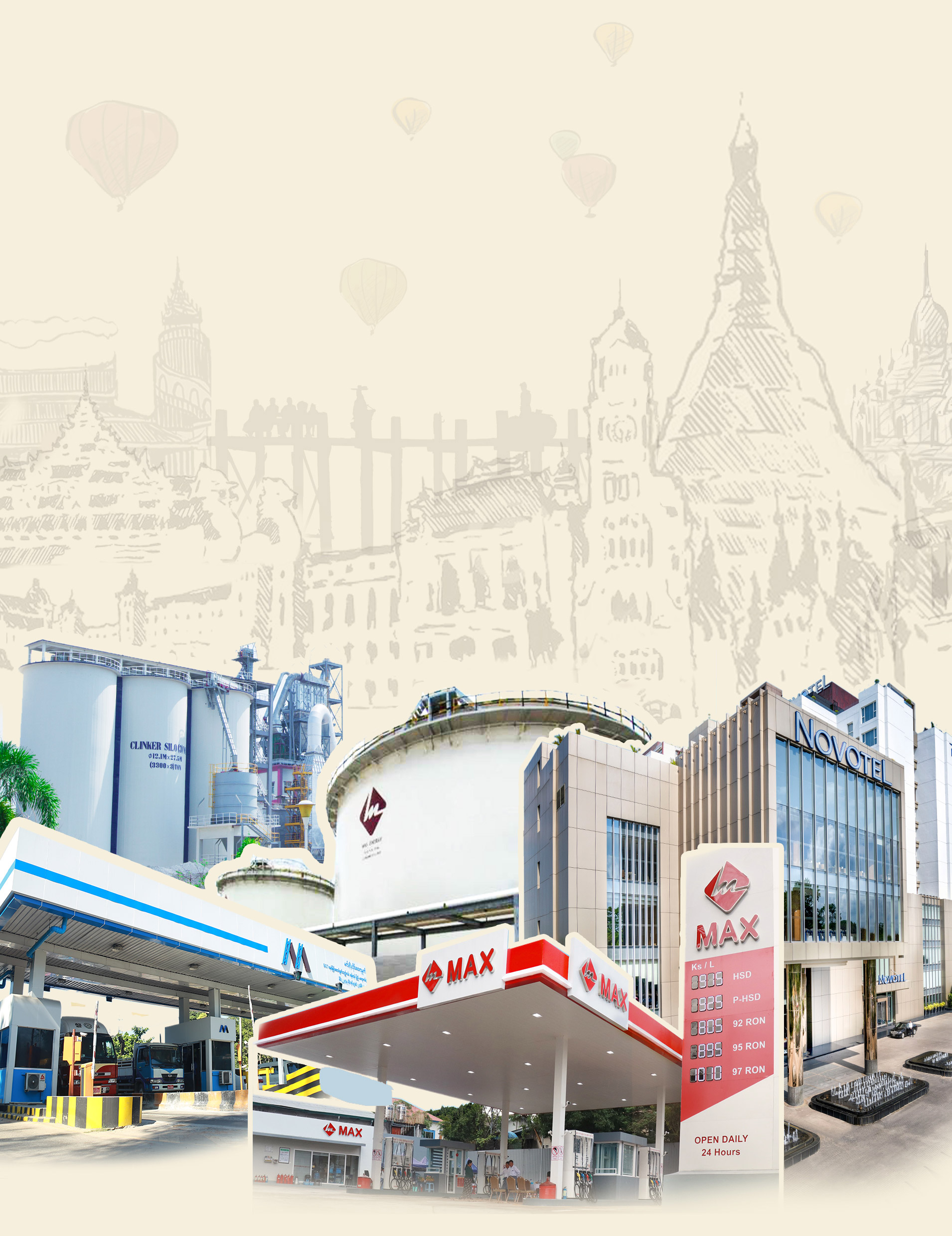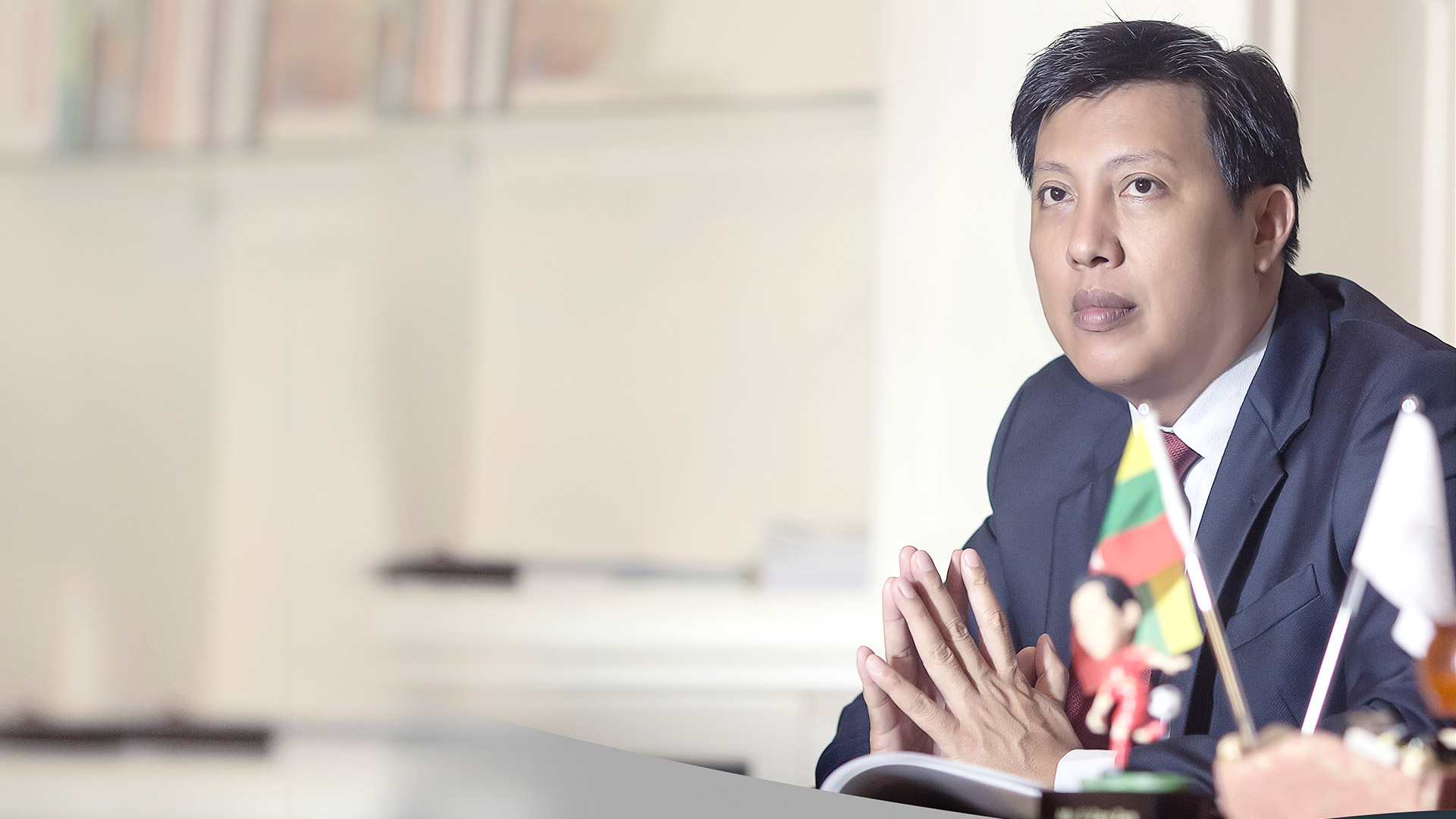With Sustainability at the Very Core, Transformation Poses No Threat
Business transformation is a change management strategy which aims to align people, processes, and technology initiatives of a company to its business strategy and vision.
Corporate overhauls are ideally undertaken preemptively, but in practice it is much more commonly a reaction to dynamic and challenging circumstances. With the mission of achieving a tangible improvement in an organization and its trajectory, transformations are a fundamental and risk-laden “reboot”.
Such transformation should be bold and rapid. During usual business operations, some employee might find the process frustrating. To achieve a rapid, management must minimize resistance.
MYANMAR REFORMS
To maintain momentum and build investor confidence, a clear and stable legal framework is crucial. A robust Companies Law can instill sound corporate practices that safeguard investors, creditors and other stakeholders – for SMEs as well as for multilaterals and conglomerates.
Key reforms in Myanmar include that foreign investors will be able to own up to 35% of a local company before it is considered a ‘foreign’ company, giving greater scope for international investors to operate in Myanmar. More flexible capital structures and changes to share capital allow companies to raise or reduce capital, with fewer procedural requirements.
INITIATED. INTEGRATED. INNOVATED.
To ensure the group-wide spread of this culture, and to communicate the message to subsidiaries, there are three parts of reform process:
- Business structure
- Finance structure
- Corporate foundation
These structures align with the group’s medium to long-term targets and sustainability initiatives.
To reform the business structure, Max Myanmar is building trust, worthiness and brand value as a unified group. It aims to raise community awareness and engagement while boosting cost-efficiency through productivity . It encourages confidence in technology through its integrated reporting system, which ensures transparency for shareholders. This is a group that prides itself on delivering innovations and services that advance general wellbeing.
“
The group remains committed to the principle of the Universal Declaration of Human Rights and UN’s Global Compact.
MAX’S SUSTAINABLE CULTURE
The group is itself as well as building a foundation for responsible business practice in Myanmar. Its aspiration to be a leading institution has paid off, driving growth for stakeholders and for the country as a whole. Max Myanmar Group has lived up to its potential and demonstrates the importance of acting responsibly. Successfully set up Strategic Partnership with foreign partners in the area of logistics, manufacturing and insurance shows how the private sector can follow its lead in a way that is consistent with international best-practice.
Max Myanmar is committed to excellence in sustainability and corporate governance across each of its business: transportation, trading, hotel, energy, agriculture, manufacturing, and logistics. It has happily participated across the group in United Nations Global Compact since 2012 and has contributed to UNGC’s Myanmar network.
As a national pioneer of corporate sustainability, Max Myanmar proactively conducted an in-depth sustainability assessment of its own operations, with input from international experts. It also organized a sustainability seminar with its stakeholders. Max Myanmar’s engagement with corporate responsibility is one of long standing, and the group solidly upholds its reputation.
Max Myanmar strives for business success in ways that demonstrate respect and champion ethical values. As a responsible Myanmar organization, it has always shown compassion and respect for people and planet. Long-term and short-term impacts to the environment and community are taken into account in all business decisions.
The group remains committed to the principle of the Universal Declaration of Human Rights and UN’s Global Compact, the world’s largest corporate citizenship initiative. Max Myanmar aspires to be the first choice company for employees an stakeholders, and a benchmark for excellence in corporate identity.
Since the re-opening of the Myanmar economy in 2011, the country has undergone significant economic, legislative and political reforms. It has made great strides in the past seven years and the results are commendable.

LOOKING FORWARD
The concept of sustainable development must be integrated both into business planning and management systems. Governance is increasingly important, and the corporation and its senior management consider themselves accountable for the direction of business development.
Max Myanmar recognizes that long-term outcomes require the adoption of strategies and activities that meet company and stakeholder needs while protecting and sustaining human and natural resources. Effective production based on sustainable business standards allows the continued improvement of the lives of customers. It also enhances the supply chain’s ability to support sustainability.
The group strategy is to focus on maximizing sustainable competitiveness in a transparent and responsible manner and to build, promote and maintain the brand image of the group.
Zaw Zaw Wants Nothing but the Best for Group and Country – Preferably With Some Football

Zaw Zaw is the founder and Executive Chairman of Max Myanmar Group and AYA Financial Group. His vision for Max Myanmar Group was simply to create one of the best institutions in the country – with a special focus on transparency and corporate responsibility.
Zaw Zaw is a firm believer in giving compassionate aid and was quick to contribute to those affected by the COVID-19 crisis. Within 1 week of the prevention programs were launched, he contributed MMK 600 million (USD 0.5 million) worth medical aids for Waibagi hospital and Yankin Children’s Hospital and provided facility quarantines as well as funded Health Insurance Benefits for caregivers and has provided accommodation, food and transport for the embattled doctors and nurse of Waibagi Hospital. With additional donation of protective chambers for Covid Testing, he has contributed MMK 1.44 billion kyats (USD 1 million) to Myanmar’s fight against the Coronavirus outbreak.
Through the Ayeyarwady Foundation, he has donated more than 80 billion kyats (USD 56 million) to philanthropic causes and corporate social responsibility activities.
In his business dealings, Zaw Zaw has almost three decades of management experience to draw on. He graduated from the University of Yangon with a major in mathematics and worked in Japan before returning to Myanmar in 1995 to establish the Max Myanmar Company (now the Max Myanmar Group).
He has been the chairman of the Myanmar Football Federation since 2005, and is vice-chairman of Asian Football Confederation.
Zaw Zaw has been honored with his country’s State Excellence Award, presented by the president of Myanmar, Win Myint. He has also been recognized for leading the group to support Dream Asia, the AFC’s social responsibility initiative. Dream Asia promotes a culture of giving and emphasizes the potential of football to bring about positive change in Asian societies.
Zaw Zaw is passionate about promoting the sport in Myanmar. He has been the chairman of the Myanmar Football Federation (MFF) since 2005 and is vice-chairman of Asian Football Confederation (AFC).
He was recognized as Banker of the Year by The Myanmar Times in 2014 for his leadership performance.
Source from : CFI Magazine

